9 Jul 2014 | News and features, Young Writers / Artists Programme
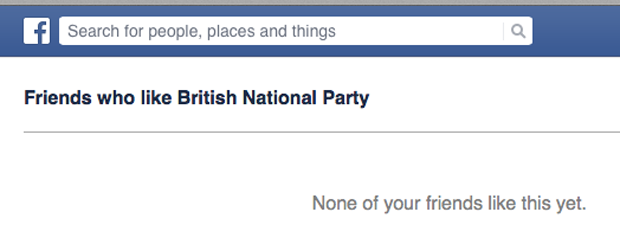
(Image: Katie Dancey)
Twitter trolls, online mobs and “offensive” Facebook posts are constantly making headlines as authorities struggle to determine how to police social media. In a recent development, links posted on Facebook allow users to see which of their friends have “liked” pages, such as those representing Britain First, the British National Party and the English Defence League. When clicking the links, a list appears of friends who have liked the page in question. Many Facebook users have posted the links, with the accompanying message stating their intention to delete any friends found on the lists. One user wrote, “I don’t want to be friends, even Facebook friends, with people who support fascist political parties, so this is just a quick message to give you a chance to unlike the Britain First page before I un-friend you.” Tackling racism is admirable, but when the method is blackmail and intimidation, who is in the wrong? All information posted on Facebook could be considered as public property, but what are the ethical implications of users taking it upon themselves to police the online activity of their peers? When social media users group together to participate in online vigilantism, what implications are there for freedom of expression?
This online mob is exercising its right to freedom of expression by airing views about right wing groups. However, in an attempt to tackle social issues head on, the distributors of these links are unlikely to change radical right-wing ideologies, and more likely to prohibit right-wing sympathisers from speaking freely about their views. In exerting their right to free speech, mobs are at risk of restricting that of others. The opinions of those who feel targeted by online mobs won’t go away, but their voice will. The fear of losing friends or being labelled a racist backs them into a corner, where they are forced to act in a particular way, creating a culture of self-censorship. Contrary to the combating of social issues, silencing opinion is more likely to exacerbate the problem. If people don’t speak freely, how can anyone challenge extreme views? By threatening to remove friends or to expose far right persuasions, are the online vigilantes really tackling social issues, or are they just shutting down discussions by holding friendships to ransom?
Public shaming is no new tactic, but its online use has gone viral. Used as a weapon to enforce ideologies, online witch-hunts punish those who don’t behave as others would want them to. Making people accountable for their online presence, lynch mobs target individuals and shame them into changing their behaviour. The question is whether groups are revealing social injustices that would otherwise go unpunished, or whether they are using bullying tactics in a dictatorial fashion. The intentions of the mob in question are good; to combat racism. But does that make their methods justifiable? These groups often promote a “with us or against us” attitude; if you don’t follow these links and delete your racist friends, you must be a racist too. Naming and shaming those who don’t follow the cultural norm is also intended to dissuade others from participating in similar activities. Does forcing people into acting a certain way actually generate any real change, or is it simply an act of censorship?
With online mobs often taking on the roles of judge, jury and executioner, the moral implications of their activities are questionable. It may start as a seemingly small Facebook campaign such as this one, but what else could stem from that? One Facebook user commented, “Are you making an effort to silence your Facebook friends who are to the right of centre?” This concern that the target may become anyone with an alternative political view demonstrates the cumulative nature of online mobs. Who polices this activity and who decides when it has gone too far?
Comments under the Facebook posts in question invite plenty of support for the deletion of any friends who “like” far right groups, but very rarely does anyone question the ethics of this approach. No longer feeling they have to idly stand by, Facebook users may feel they can make an impact through strength in numbers and a very public forum. Do those who haven’t previously had a channel for tackling social issues suddenly feel they have a public voice? Sometimes it’s difficult to accept that absolutely everyone has the right to free speech, even those who hold extreme views. In a democracy, there may be political groups that offend us, but those groups still have a right to be heard. The route to tackling those views can’t be to silence them, but to encourage discussion.
This article was posted on July 9, 2014 at indexoncensorship.org
8 Jul 2014 | Egypt, News and features
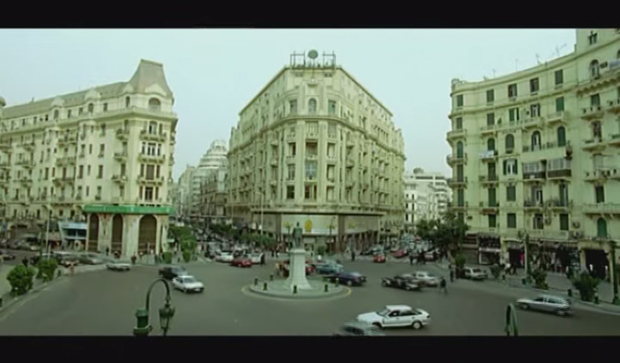
A still from the trailer of big-budget Egyptian film Yacoubian Building (Image: Strand Releasing/YouTube)
When mass protests broke out in Egypt on January 25 2011, the uprising took many people around the world, including Egyptians, by surprise. But some believe the stage was in fact already being set for revolution years earlier — and that popular culture played a part.
On 17 December 2010, Mohamed Bou Azizi, a Tunisian street vendor had set himself on fire in protest of the confiscation of his wares and the humiliation inflicted on him by a municipal official. His act sparked mass street protests in Tunisia which 28 days later, led to the overthrow of the authoritarian regime of Zine El Abidine Ben Ali.
When Ben Ali fell, analysts questioned whether the uprising in Tunisia would inspire similar revolts in other North African countries with despotic regimes, including Egypt which they pointed out, also suffered enormous socio-economic inequalities, widespread youth unemployment and political marginalisation of the masses.
The thought of a mass uprising in Egypt was however, quickly dismissed by Egyptian officials as “outrageous”.
“Egypt is not Tunisia”, scoffed veteran diplomat Amr Moussa when I asked him if Egypt would be next. I met Moussa on January 19, 2011 at a Sharm El Sheikh conference on Arab Economic Integration — a gathering that was overshadowed by the dramatic events unfolding in Tunisia. The veteran diplomat who had served as foreign minister under Hosni Mubarak, confidently told me that Egypt was “a much bigger country and vastly different in terms of demography”. Moussa’s argument convinced me. Indeed, Tunisia is a homogeneous society with a relatively well-educated population unlike Egypt — a more diverse society with in excess of 16 million illiterate people, according to a 2012 study released by the Central Agency for Public Mobilisation and Statistics.
Besides, there was widespread political apathy in Egypt. For decades, the Egyptian people had silently tolerated rights abuses at the hands of the corrupt regime. So patient were the Egyptians with their repressive government that analyst Khaled Diab joked about their political apathy in an op-ed published in the Guardian in June 2009, saying that: “The people of Egypt possessed some sort of a cultural gene against rebellion and risk taking.”
It was not surprising that the Egyptians had shown remarkable immunity to the Tehran protest virus, he wrote, explaining that “the Egyptian people had for decades, been ruled by a long succession of foreigners who cared little for their well being. They considered their native rulers just as alien.”
The widely-anticipated political pandemic had hitherto, failed to materialise… Until Tunisians revolted.
But contrary to popular belief, the eighteen-day uprising that overthrew Mubarak was not an “overnight eruption”. In fact, it had taken several years of ground-laying and a series of events helped pave the way for the revolt that was to come.
Some analysts believe the stage was being set for the 2011 mass protests from as early as 2004, not long after the fall of Iraqi strongman Saddam Hussein.
This was the year Egyptian intellectuals, artists and activists founded the Kefayya (Enough) Movement that would oppose the Mubarak regime and call for fundamental constitutional and economic reforms. Although the overarching ideology of the movement is largely secular, many members of the then-outlawed but tolerated Muslim Brotherhood joined forces with the leftists and secularists.
Moreover, there were the workers’ unions, which in the years leading up to the uprising had organised a series of labour strikes, protesting low wages and rising food costs. The 2008 labour protests which began as an initiative of workers in the textile industry in Mehalla El Kobra and other Egyptian cities, inspired mass momentum and were the first spark that ignited the street protests that followed two years later.
Egypt’s pro-democracy youth activists were also active and widely credited for using social media networks to fuel the anger against the brutal regime. The April 6 Youth Movement and “We are All Khaled Said” Facebook group mobilised Egyptians for the protests by posting videos of police brutality and calling for civil disobedience.
Again, contrary to popular belief, the January 2011 uprising was not merely a “people’s movement”, as it has often been described. Some analysts think the uprising may have been driven by the security state much like the revolt that ousted Mohamed Morsi, Egypt’s first freely elected president, two years later. Breakaway members of Tamarod, the movement that last summer gathered signatures for a petition calling on the Islamist president to step down, later revealed that “state security agents had guided and influenced our campaign”.
Some members of the group went as far as admitting that “some of the movement’s founders had been planted by state security” according to a Reuters article published online on February 20, 2014. Similarly, the January 25 uprising may have also been guided, albeit more subtly by the deep state — a term used to refer to the country’s combined security apparatus: the intelligence services, the police and National Security. It was no secret that Mubarak had been grooming his son Gamal to succeed him — a move that was rejected by senior-ranking generals in the army. The generals had expected the succession bid to cause popular unrest and decided to be prepared to step in.
“General Abdel Fattah El Sisi, who was head of military intelligence in 2010, had already been picked by his bosses as the country’s next defence minister and was asked to prepare a study of Egypt’s political future. He proposed that the army should be prepared to move in to ensure stability and preserve its central role in the state in the likely event of civic unrest breaking out,” journalist Richard Spencer wrote in an opinion piece published in the Telegraph in June 2014. Political analyst Hassan Nafaa was quoted as telling Spencer that: “When the revolution of 2011 exploded, the army had already made plans to deploy.”
“They chose to sacrifice Mubarak rather than the regime itself,” Nafaa added.
Egypt’s powerful military firmly believes it is entitled to remain in power, having fought two wars with Israel. Besides, at stake — should the country be ruled by a civilian president — is the military’s vast business empire estimated to be as much as 40 percent of the country’s GDP.
So how did the deep state in Egypt prepare unsuspecting Egyptians for the uprising that was to come?
Culture and the arts served as the catalysts for the movement for change that was being shaped as early as four or five years before the actual “revolution” erupted. From 2006 onwards many artistic works, including locally-produced films screened in Egyptian theatres, helped fuel the people’s anger and frustration, inciting protests against the inept government. While some may dismiss this theory as absurd, in reality, there is strong evidence to support it.
Take the big-budget film “Yacoubian Building”, based on the novel of the same name by author Alaa Aswany, a member of the opposition Kefayya Movement. The three hour epic, screened in Egypt in 2006, shed the spotlight on a host of societal ills including the rampant corruption, sexual repression and religious fundamentalism plaguing contemporary Egyptian society. It also reflected the hopes of young Egyptians for a just society based on rule of law and respect for civil liberties. Like Egypt itself, the building in which the film’s lead characters reside had crumbled “from a once-elegant edifice of Art-Deco splendour now slowly decaying in the smog and bustle of downtown Cairo”, Nana Asfour, who works as a cultural editor for the New Yorker, wrote in a 2007 review of the book.
The book brings to life “a seedy and despicable Cairo where only the corrupted and corruptible can fare well” she wrote, adding that “in this scathing critique of contemporary Egyptian society, one is hard put to find a redeemable character”.
From Abdou and Busayna, who by necessity acquiesce to selling their bodies to feed their families, to Talal, who seeks solace in religion and later resorts to “martyrdom” — they all are victims of their merciless society. The film also portrays the fake religiosity widespread in today’s Egypt where many conceal their greed behind deceiving pious behaviour and appearances — like prominent lawyer Kamal El Fouli who rigs the parliamentary vote in favour of Hag Azzam, justifying the action as “implementation of God’s will”.
“Our Lord created the Egyptians to accept authority,” El Fouli tells Azzam in the film.
Shocking as it was to an audience previously unaccustomed to having the realities of their everyday lives mirrored so brazenly, the Yacoubian Building was a wake-up call to many Egyptians who were able to identify with the film’s characters. It was also the first in a series of films produced between 2005 and 2010 that were fiercely critical of society and which spurred Egyptians to rebel against the flagrant injustices within it.
Heya Fawda (“It’s Chaos”), an Egyptian-French 2007 co-production and the last film by internationally-acclaimed Egyptian director Youssef Shahin, meanwhile brought international attention to Egypt’s longstanding problem of police corruption and brutality when it was screened at that year’s Venice Film Festival. Police brutality was one of the main causes that triggered the 2011 uprising which aptly coincided with the country’s National Police Day. Set in Cairo’s populous district of Shoubra, the film shockingly depicts the brutal actions of a shady police officer, feared and loathed by the residents in his neighbourhood. So shocking was his brutality that it prompted some film critics to question whether the film was “serious or a lampoon”.
Khaled Youssef, who co-directed the film with Shahin, was later credited with having had the vision to foresee the coming political changes and for “stirring the still waters” with his films. The filmmaker and scriptwriter, who joined the pro-democracy activists in Tahrir Square during the 2011 uprising, would later reveal himself as a fierce opponent of the democratically elected Muslim Brotherhood regime, aligning himself closely with the military-backed authorities that replaced the ousted Morsi. His close links with the military have raised questions over whether his films were actually the outcome of his foresight or a premeditated and carefully calculated plan by the country’s security apparatus to topple Mubarak.
Youssef’s follow-up to Heya Fawda was another shocking revelation of the flagrant social injustice prevalent in modern-day Egyptian society. Set in a Cairo slum area, it depicts the daily struggles of the inhabitants of this deprived neighbourhood, including sexual violence against women and the plight of street children. The film ends with the residents of the slum rising up in arms to protest their conditions — which some observers viewed as a possible beckoning call on needy Egyptians to rise in similar fashion.
Last but not least, was the 90 minute comedy “The President’s Chef” released in 2010. In the film, a simple cook tries to convey to a president out of touch with his people, the hardships faced by average Egyptians in their daily lives. Film critics drew similarities between the film’s lead character and the real president who during the last ten years of his rule, had often been criticized for isolating himself in his own ivory tower, oblivious to the needs of his people.
In a country with a long tradition of strict censorship rules, one cannot help but wonder if the censors’ decision to pass those films was a coincidental loosening up of their tight restrictions in a bid to give a semblance of democracy and free speech. Or was it instead, a deliberate and tactical scheme to pave the way for Mubarak’s ouster?
Looking back at the events of the last three years that have ended with the return of the old regime minus Mubarak, it appears clear that nothing in Egypt happens by sheer coincidence.
This article was posted on 7 July 2014 at indexoncensorship.org
7 Jul 2014 | About Index
Index on Censorship is now recruiting for its next Youth Advisory Board for a six month term (December 2014 to May 2015). The board is open to 16-25 year old volunteers from around the world.
To apply to be on our youth board please send your CV and a covering letter to [email protected], stating what you think is the most pressing free speech issue of the moment.
Deadline for applications is 7th November 2014 at 5pm.
Find more information about the role of Index’s Youth Advisory Board and current board members below.
What is the youth board?
The youth board is a specially selected group of young people aged 16-25 who will advise and inform Index on Censorship’s work, supporting our ambition to fight for free expression all around the world and ensuring our engagement with issues relevant to tomorrow’s leaders.
Why has Index started a youth board?
Index on Censorship is committed to fighting censorship not only now, but also in future generations, and we want to ensure that the realities and challenges experienced by young people in today’s world are properly reflected in our work.
Index is also aware that there are many who would like to commit some or all of their professional lives to fighting for human rights and the youth board is our way of supporting the broadest range of young people to develop their voice, find paths to freely expressing it and potential future employment in the human rights/media/arts sectors.
What does the youth board do?
Board members meet once a month via Google Hangout to discuss the most pressing freedom of expression issues of the moment and to set a monthly question for our project, Draw the Line. You will be expected to write a minimum of 1 blog post introducing/concluding the question of the month and to help us spread the word about Index.
There is also the opportunity to get involved with events such as debates and workshops for our work with young people and also events such as our annual Index Freedom of Expression Awards and Index magazine launches.
How do people get on the youth board?
Each youth board will sit for a term of 6 months.
Current board members are invited to reapply up to one time.
The board will be selected by Index on Censorship in an open and transparent manner and in accordance with our commitment to promoting diversity.
Why join the Index on Censorship youth board?
You get the chance to be associated with a prestigious media and human rights organisation and have the opportunity to discuss issues you feel strongly about with Index and with other amazing young people (internationally). At each Board meeting we will also give you the chance to speak to someone senior within Index or the media/human rights/arts sectors, helping you to develop your knowledge and extend your personal networks and you’ll be featured on our website.
Index on Censorship Youth Advisory Board
Alice Olsson

Alice is a student journalist and human rights advocate. Originally from Stockholm, Sweden, she is currently reading English and related literature at the University of York. Her main research interest is contemporary freedom and resistance writing, particularly the function of different media channels in modern revolution narratives.
Daniel Rey

Daniel is an eighteen-year-old student about to begin his studies at St Andrews University. Daniel thinks that freedom of expression and freedom of speech are important primarily due to their central role in the functioning of a democratic state and a civic society.
Farah Wael
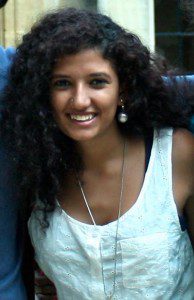
Farah is an Egyptian who has been working on freedom of expression issues, with a special focus on press freedom in the Middle East and Arab world. She now lives somewhere between Cairo, Paris and Beirut.
Margot Tudor

Margot is studying history at the University of Bristol. She became interested in free expression issues thanks to the Libel Reform movement in 2010. Since then Margot has developed her involvement in current affairs by being a reporter for Epigram Newspaper and becoming deputy head of news for UBTV.
Morgan Meaker

Morgan is a human rights and arts journalist based in London. Morgan has been published by The Young Greens, Dazed & Confused, Time Out, The Huffington Post and London Calling. While living in Berlin, she set up political art magazine The Illuminator and she is currently working on the launch of SOUF – a platform dedicated to South London.
Priyanka Mogul

Priyanka is manager of the International Political Forum and studies journalism with human rights at Kingston University. She is also communications intern for the United Nations Association and has just been re-elected for her third term as president of the Kingston University Journalism Society. Priyanka recently founded the Spread The Word Campaign, which aims to open libraries in homeless shelters across London.
Sheema Ghani
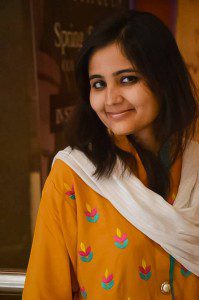
Sheema studied to become an engineer from NED University of Engineering and Technology, Karachi. Sheema’s desire to be an agent for a positive change in her society has allowed her to play an important role in the rehabilitation of victims of bomb blasts and natural calamities. Being a supporter of interfaith harmony, minority rights and free media, she is proud to represent Pakistan on the youth board at Index on Censorship.
Sophie Armour
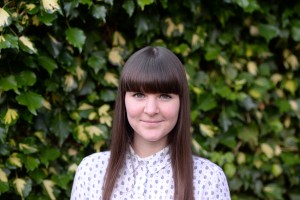
Sophie is an editor at a media analysis company, as well as a freelance writer and active member of the Green Party. A journalism graduate originally from Manchester, she spent five years as a freelance music journalist, going on to run London nightlife blog and digital magazine, Standard London Evening.
7 Jul 2014 | Draw the Line, Events, Young Writers / Artists Programme
As cheers from the World Cup rumbled in the background, Index set up an online platform to debate the tussle between sport and freedom of speech. As part of the Draw the Line series of discussions, last month’s question was: Should repressive regimes be banned from sport? If countries have poor human rights record, do they deserve to participate?
Twitter erupted with opinions. Immediately the question of defining a repressive regime was raised – whose duty would it be to decide? Although many might agree that Iran’s government-controlled press was anti-free speech, would the US’s treatment of whistleblower Edward Snowden fall into the same category?
Others argued that banning offending countries would leave their crimes in the shadows. Instead they believed oppressive regimes should suffer the spotlight of global media – hoping that the publicity would encourage conversation and spark change.
Opinions seemed split at the first Draw the Line event, where ten young human rights activists gathered to discuss the same issue. Although some declared passionately that repressive regimes must be punished, there were fears that a ban would misdirect that punishment – affecting a country’s people rather than its leaders.
Defining the World Cup’s worst countries for free speech – or the “group of death” – seemed to make a much easier task for the young activists. Examining democracy, civil liberties, press regulations, internet freedom and corruption, participants unanimously decided that Cameroon, Iran, Nigeria and Russia qualified as the countries that held freedom of speech in the lowest regard.
As the debate evolved, a common consensus emerged: A campaign should be set up to stop countries that stifle free speech from hosting high profile sports events, like the world cup. With host countries benefiting from huge boosts to the economy, infrastructure and community spirit, this should be incentive enough to halt human rights abuses without punishing innocent citizens by banning countries completely.
More about Draw the Line










